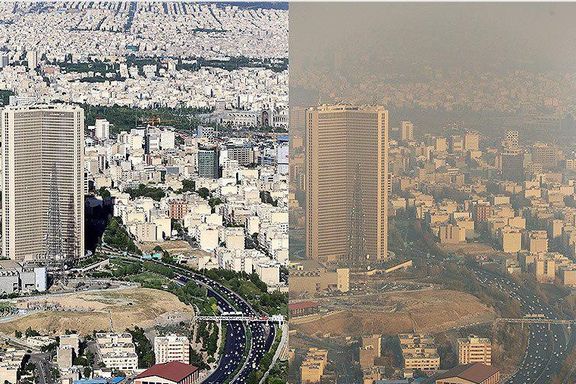Iran Faces Natural Gas Shortages Amid High Winter Consumption

With a cold spell gripping Iran this week, shortages of natural gas have become acute and power stations are burning more dirty fuels, feeding air pollution.

With a cold spell gripping Iran this week, shortages of natural gas have become acute and power stations are burning more dirty fuels, feeding air pollution.
Turkey’s announcement on Thursday that Tehran has cut gas deliveries signals the critical situation Iran is facing in keeping its own citizens warm and providing electricity. The country has the second largest reserves of natural gas in the country but is barely able to satisfy domestic demand.
An article published by the Islamic Labor News Agency (ILNA) in Tehran on Friday provides a bit more details about the natural gas crisis, based on information from an official of an industry group representing companies that run power plants in Iran.
Mohammad-Reza Zahed told ILNA that power plant operators are not happy when they are forced to use mazut, a dirty, unrefined oil product that most countries have banned. The fuel harms power plants and leads to heavy pollution in urban centers, but they have no choice as they gas deliveries in winter and summer are halved.
Electricity generation in Iran needs around 220 million cubic meters of gas per day, while in January deliveries declined to 100 million cubic meters. The government that controls fossil fuel production, cannot export mazut in large volumes and power plants have no choice but to use what is delivered to them.
Officials in recent weeks have already warned of high smug and pollution in cities, especially as precipitations and high winds of the past ten days comes to an end.
Iran’s gas fields, suffering from lack of Western technology and investments, are not able to keep up with domestic demand. Zahed told ILNA that annual consumption stands at 210 billion cubic meters (7.4 trillion cubic feet). Residential and commercial consumption is 105 billion cubic meters, while power stations use 60 billion and heavy industry another 40 billion cubic meters of gas.
Zahed also revealed another interesting information. Power stations must pay fines for pollution while they have no choice in burning mazut, which the government imposes on them.
The industry insider blamed lack of gas deliveries also on the distribution system, explaining that pressure in pipelines fall off because of insufficient pumping capacity. He added that power plants in the south of the country get more gas because of their proximity to production sites, while plants in the north have to rely more on mazut.
Mohsen Khojastepur, general director of the Iranian national oil company said in October that if investments in the gas industry are not secured to the tune of $50 billion, Iran will become a net importer in the coming years.
Oli minister Javad Owji has said that around $150 billion is needed to revitalize oil and gas production, but Iran has been hit by US banking sanctions and is isolated from the international financial system. Even without sanctions, few investors would risk large lending to Iran, knowing about the risk of unexpected developments related to its domestic and foreign policies.